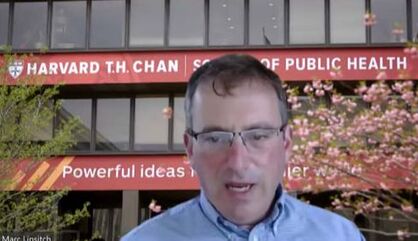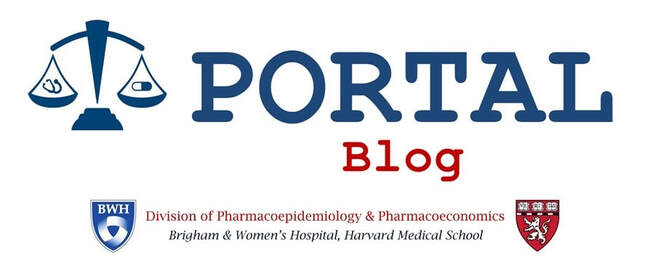|
Leah Rand Last Friday, September 11th, PORTAL hosted the first event in its annual series of Health Policy and Bioethics Consortia, “COVID-19, Public Health Ethics and Policy for Pandemics.” The consortia aim to define and stimulate discussion of key issues in healthcare and public health that raise ethical questions and policy responses, and the series brings together experts with different perspectives to consider the problems and solutions. Since the SARS-CoV-2 pandemic began, a wide range of policy and ethics issues have arisen; the consortium focused on the challenge of making policy decisions when there is uncertainty about the pandemic and moral uncertainty about what policies and actions are right to take.  Presenting first was Marc Lipsitch, DPhil, Professor of Epidemiology and Director of the Center for Communicable Disease Dynamics at the Harvard T.H. Chan School of Public Health. As a well-known researcher in the field of infectious disease dynamics, Dr. Lipsitch explained some of the basics of modeling a situation like the SARS-CoV-2 pandemic and how the available data is rarely sufficient to draw conclusions with high certainty. The value of the models can be to reveal the extent of uncertainty and assist decision-makers to understand the risks of different policy options, including doing nothing. In his talk, he demonstrated how modeling can provide a useful resource when decisions need to be made quickly, and, using the example of a 2002 smallpox vaccination campaign in the US, that the information must be frequently re-assessed to determine if the policy needs to change.  Next, Matthew Wynia, MD, MPH, Director of the Center for Bioethics and Humanities at the University of Colorado Anschutz Medical Campus, delved into the ethics of the COVID-19 response and attitudes towards infectious disease. He structured his presentation around “the three R’s of ethics in epidemics”: restrictions on liberty, resource allocation, and responsibilities. Dr. Wynia discussed the history of blame and stigmatization of infectious diseases before turning to the current situation. He also emphasized the need for frequent re-assessment of decisions since initial decisions, like ventilator allocations, should be revised to the immediate situation. Polling the audience, he highlighted the kinds of ethical problems and disagreement that arise, even when unpacking simple sounding principles like “save the most lives.” He concluded by discussing the evidence for quarantine and the challenges of imposing restrictions on liberty, pointing to experiences from the SARS epidemic when some quarantine attempts backfired. The two speakers then took audience questions, engaging in a discussion about how to present complicated and changing information to the public, promote public trust in and the trustworthiness of institutions, and address pre-existing inequities in new public health decisions. As Dr. Lipsitch noted, good decision-making early on in the pandemic could preclude some ethical challenges later in it; but some of these challenges, as noted by Dr. Wynia, arise from balancing between the ethical principles that should guide any response.
A recording of the session will be available soon. |
AuthorPORTAL Blog posts are authored by PORTAL faculty, trainees, and collaborators. Archives
January 2022
Categories |
|
Program On Regulation, Therapeutics And Law (PORTAL)
Division of Pharmacoepidemiology and Pharmacoeconomics 1620 Tremont Street, Suite 3030 Boston, MA 02120 |



 RSS Feed
RSS Feed
